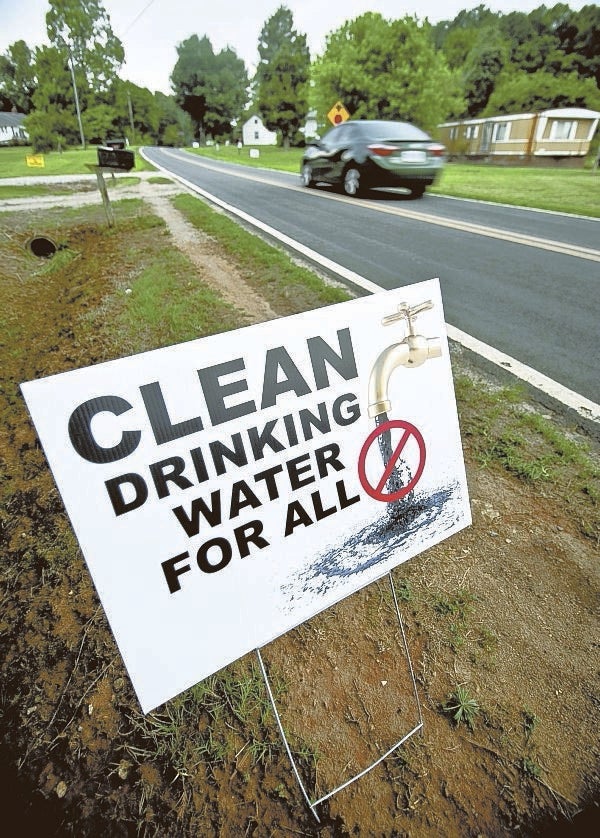Editorial: Science vs. expedience on drinking water
Published 12:00 am Wednesday, August 3, 2016

- A sign in the yard of a Dukeville home. JON C. LAKEY / SALISBURY POST
Neighbors of Duke Energy’s coal ash ponds were skeptical in the spring when the state reversed earlier do-not-drink warnings for their well water. The residents suspected the change was based more on politics than science.
They were smart to stick to bottled water.
A deposition given by state toxicologist Dr. Kenneth Rudo — a deposition Duke Energy did not want released — reveals just what the Dukeville residents suspected. Rudo did not agree with state public health director Dr. Randall Williams’ decision to declare the water safe. Rudo is standing by the strict standards that he helped set for hexavalent chromium and vanadium found in tainted well water.
“The state health director’s job is to protect public health,” testified Rudo, the state’s toxicologist for nearly 30 years. “And in this specific instance, the opposite occurred. He knowingly told people that their water was safe when we knew it wasn’t.”
Not only that, but Rudo says he was called to the office of the governor, a longtime Duke Energy employee, and questioned about the necessity of sending out the warning letters in the first place.
Rudo’s stance comes as no surprise to anyone who has heard him talk about the coal ash situation. In an appearance in Rowan County last summer, he made it clear he felt residents were in danger.
“We got a problem,” Rudo said. “This is not a good situation.” He emphasized the presence of hexavalent chromium in wells near the coal ash ponds, describing it as the chemical from “that movie.”
Several audience members called out the movie’s name, “Erin Brockovich,” based on the story of a power plant in Hinkley, Calif., whose storage ponds exposed nearby residents to high levels of hexavalent chromium. In 1996, Pacific Gas & Electric had to pay the plaintiffs in a lawsuit a $333 million settlement. More cases and multi-million-dollar settlements followed.
Dukeville is not Hinkley. The levels found in wells around Duke’s coal ash ponds are much lower.
If an error is to be made in the North Carolina situation, though, it should be made on the side on caution. Duke Energy has claimed from the beginning that Rudo’s standards were too strict, and this paper has also questioned the standards. But the way this story has unfolded raises serious doubts about the role of the governor’s office, the wisdom of suddenly declaring the water safe, and the pressure applied by Duke Energy — pressure Rudo will feel soon if he hasn’t already. Duke spokesperson Paige Sheehan said the company opposed the release of the deposition because there would be more to come. “His deposition is only about half completed,” she said, “and lawyers are just beginning to challenge Dr. Rudo’s motives, his claims and his credibility.”
The motives, claims and credibility of a lot of people are in doubt right now, including Dr. Randall Williams and Gov. Pat McCrory. It’s no wonder Dukeville residents have become skeptics.


